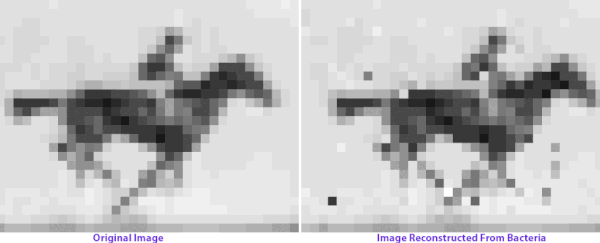Super Cool Science S#!t #2 - CRISPR/Cas9 - A revolution in genetic engineering
What if we had the technology to cure any and all genetic defects and diseases before they ever had a chance to start? How about the ability to decide what we want our children to look like? What if we could create completely new lifeforms to solve some of the world's biggest problems? It may seem like science-fiction, but CRISPR-Cas9 is science-fact, and it will change the way we think about genetic modification.
.jpg)
Source: Wikimedia commons

What is CRISPR?
Pronounced "crisper", CRISPR stands for Clustered Regularly Interspaced Short Palindromic Repeats. The term actually describes a bacterial defense mechanism that makes up the backbone of the technology. It's a tool that allows scientists to permanently alter the genes of living cells, editing DNA with surgical precision by programming an enzyme to do all the hard work.
Just last Friday, we caught our first glimpse at one in action when Japanese scientists published a real-time video of Cas9 slicing a strand of DNA, recorded using high-speed atomic force microscopy.

How does CRISPR work?
Put very simply, it uses RNA sequences that guide the whole system to the targeted DNA. The Cas9 enzyme will bond to the matching genetic code, and cut it. This serves to turn off a gene at will. By modifying the enzyme, researchers have been able to turn on deactivated genes, and could maybe even "fix typos" in DNA.

What can CRISPR be used for?
Researchers at Temple University used CRISPR-Cas9 to eliminate HIV in lab mice, and others were able to essentially "cut out" the gene for Huntington's in their mice. This could lead to a better ability to stop killers like AIDS in their tracks, and make incurable diseases a thing of the past.
Scientists from Harvard used the system to encode a digital movie into the DNA of living E-coli bacteria, and play it back...

Source: Seth Shipman
Biohackers are even using CRISPR to experiment with their own genetic code. Josiah Zayner, who while giving a lecture about human genetic engineering, injected himself with a syrum intended to alter his myostatin, a gene that prohibits muscle overgrowth. You can see the entire thing in his live stream of the events.

The ethics involved with CRISPR, and genetic modification in general, are still highly debated. I know what side of the fence I'm on. Do you? Let me know what you think about CRISPR in the comments!

Sources:
- https://www.broadinstitute.org/what-broad/areas-focus/project-spotlight/questions-and-answers-about-crispr
- https://www.nature.com/articles/s41467-017-01466-8
- https://www.sciencealert.com/9-amazing-things-we-have-already-achieved-this-year-with-help-from-crispr
- https://medicalxpress.com/news/2017-05-gene-strategy-hiv-infection-animals.html
- https://www.jci.org/articles/view/92087
- https://www.newscientist.com/article/mg23631520-100-biohackers-are-using-crispr-on-their-dna-and-we-cant-stop-it/amp/


Wow. Cool stuff. My grandkids have a rare disease because of a defect in Exon 7 of the NLRP gene. They have to take shots every day. Research like this offers hope. If only there was a way to keep the government from weaponizing it.
It's scary stuff. Technology like this has the potential to help or hurt many people, depending on who uses it and for what.
Real mention dear, need to heart stay at any work for success so be passionate